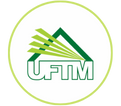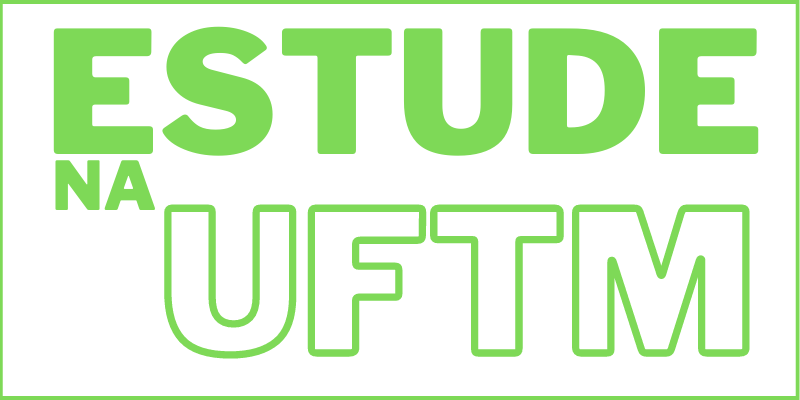Graduate Program in Physiological Sciences
Presentation
The Physiological Sciences program aims to develop creativity in the scientific area, to expand and deepen knowledge in two specific areas (see below), in order to qualify professionals for teaching and research activities.
The Master´s program lasts for a minimum of twelve months and a maximum of twenty-four months, with a minimum total workload of 750 hours for completion. The PhD. program lasts for a minimum of twenty-four and a maximum of forty-eight months, with a minimum total workload of 1500 hours for completion.
Objectives
To discuss problems related to Physiological Sciences; To correlate knowledge on Physiological Sciences with knowledge on other related areas; To develop initiative and critical capacity in the areas related to the program; To practice didactic training; To conduct research so that its results may contribute to the progress of science and, at the same time, results that may be recognized by Society and the scientific community; To develop skills to write research work and present its results in scientific events.
Target audience
Students with undergraduate degree in Biomedical Sciences and related areas.
Concentration areas
Area I: Biochemistry, Physiology and Pharmacology
Area II: Parasitology, Immunology and Microbiology.
Lines of Research
BIOLOGY OF FUNGI AND BACTERIA
Description: Study of basic and applied clinical aspects of fungi and bacteria biology based on human interest.
PARASITOLOGY, IMMUNOLOGY AND MICROBIOLOGY
BIOLOGY OF BLOOD AND TISSUE PROTOZOA
Description: biological characterization and study of pre-clinical and clinical aspects of different human pathogenic protozoa in order to understand the mechanisms that may be involved in the pathogenesis of protozoa-caused diseases, including Chagas, Leishmaniasis, among others, in a molecular approach.
PARASITOLOGY, IMMUNOLOGY AND MICROBIOLOGY
STEM CELLS AND CELL THERAPIES
Description: stem cells and cell therapies.
BIOCHEMISTRY, PHYSIOLOGY AND PHARMACOLOGY
CORTICAL DEVELOPMENT DISORDERS ASSOCIATED WITH PHARMACOLOGICALLY RESISTANT EPILEPSY
Description: disorders on cortical development associated with pharmacologically resistant epilepsy.
BIOCHEMISTRY, PHYSIOLOGY AND PHARMACOLOGY
STUDY OF CELL AND MEDIATORS PARTICIPATION AND INTERACTION BETWEEN CELLS AND MEDIATORS IN THE INFLAMMATORY RESPONSE
Description: broad research line that aims to understand the different aspects of the immune response as listed: mediators and mechanisms involved in leukocyte migration and phagocytosis in the inflammatory response. Mediators and intracellular mechanisms involved in the failure of neutrophil migration in sepsis. Inflammatory response in neoplasias of gynecological origin: uterine cervix, ovaries and breast. Mediators and intracellular mechanisms involved in alteration of leukocyte migration in uterine cervix cancer. Mediators and intracellular mechanisms involved in the inhibitory effect of chemotherapeutic agents on neutrophil migration in breast cancer.
BIOCHEMISTRY, PHYSIOLOGY AND PHARMACOLOGY
IMMUNOLOGY AND GENETICS OF IMMUNE RESPONSE ON RESISTANCE AND SUSCEPTIBILITY TO HUMAN INFECTIOUS DISEASES
Description: Cytokines, immune response regulation, Chagas disease, Leishmaniasis, neurocysticercosis and schistosomiasis.
PARASITOLOGY, IMMUNOLOGY AND MICROBIOLOGY
MOLECULAR MODELING, BIOSENSORS AND NANOSTRUCTURED MATERIALS APPLIED IN BIOMEDICAL SCIENCES
Description: studies on molecular modeling and biosensors development, as well as development of nanostructured materials to carry biologically active substances.
BIOCHEMISTRY, PHYSIOLOGY AND PHARMACOLOGY
BIOLOGICALLY ACTIVE PEPTIDES
Description: purification, characterization and localization of biologically active peptides and their generators and degrading agents, such as kininogenase and kinins, renin-angiotensin system and other processes.
BIOCHEMISTRY, PHYSIOLOGY AND PHARMACOLOGY
PROSPECTING ACTIVE PRINCIPLES AGAINST MICRO-ORGANISMS
Description: factors of virulence and susceptibility to fungus antifungal of medical importance. Food microbiology.
PARASITOLOGY, IMMUNOLOGY AND MICROBIOLOGY
REGULATION OF THE CARDIOVASCULAR SYSTEM IN PHYSIOLOGICAL AND PATHOPHYSIOLOGICAL SITUATIONS
Description: To study the different aspects of cardiovascular system control, particularly the autonomic neural control, in physiological situations, such as physical exercise, or pathophysiological situations, such as systemic arterial hypertension, Chagas disease, myocardial infarction, chronic kidney disease, etc.
BIOCHEMISTRY, PHYSIOLOGY AND PHARMACOLOGY
Access requirements
For the Master´s Program: Undergraduate degree in Health Sciences.
For the PhD Program: Master´s degree in Health Sciences.
Post-doctorate: PhD degree in the Health Sciences area.
Coordination and secretariat
Email: cpgcf@icbn.uftm.edu.br
Phone: +55 (34) 3700-6408
Address
Av. Getúlio Guaritá nº 107 – Bairro Abadia
Praça Manuel Terra, 330, Bairro Abadia.
CEP: 38025-015
Additional Information
Year of Approval/ Authorization: Master: December 2007, PhD: August 2015
Conferred title: Master, PhD and Post-doctorate
Type of education: Classroom attendance
Type of Admission: Selection process conducted every semester
City: Uberaba



Redes Sociais